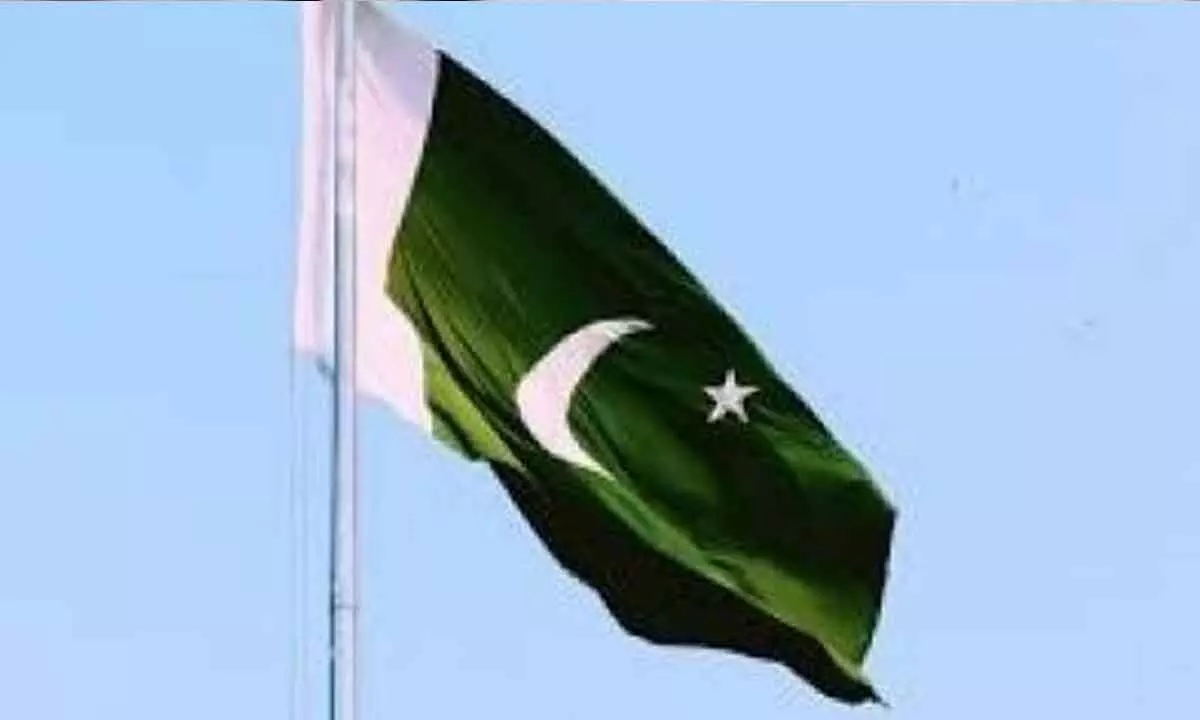Ingrained discrimination in marginalisation of Pak’s Baloch and Pashtun communities

Systemic discrimination against Baloch and Pashtun communities is evident in the persistent underdevelopment of their regions. Despite Balochistan’s wealth in natural resources, it remains one of Pakistan’s poorest and least developed provinces. The Pakistan’s federal government’s exploitation of these resources, without adequate reinvestment in infrastructure, education, and healthcare, highlights ongoing economic marginalisation.
New Delhi: Pakistan’s Baloch and Pashtun populations encounter systemic discrimination within the country’s socio-political landscape. Despite their rich cultural heritage and historical contributions, these communities face pervasive marginalisation and stereotyping, primarily from the dominant Punjabi demographic.
This discrimination is evident in economic disenfranchisement, social stigma, and political exclusion. Predominantly residing in Balochistan and Khyber Pakhtunkhwa provinces, respectively, Baloch and Pashtun groups are often misrepresented and marginalized, seen through a lens of prejudice and ignorance.
The Punjabi majority, holding significant political and economic influence, often marginalises these communities, viewing them as obstacles to progress rather than essential parts of the national identity.
Socio-economic and political disenfranchisement
Systemic discrimination against Baloch and Pashtun communities is evident in the persistent underdevelopment of their regions. Despite Balochistan’s wealth in natural resources, it remains one of Pakistan’s poorest and least developed provinces. The Pakistan’s federal government’s exploitation of these resources, without adequate reinvestment in infrastructure, education, and healthcare, highlights ongoing economic marginalisation.
Similarly, Khyber Pakhtunkhwa faces insufficient economic opportunities and developmental neglect, widening socio-economic gaps compared to more prosperous Punjab. Politically, both Baloch and Pashtun groups experience significant exclusion.
Power centralised in Islamabad, influenced by Punjabi elites, consistently sidelines these communities from meaningful participation in national decision-making. This political disenfranchisement perpetuates their marginalisation, sustaining a cycle of neglect and underdevelopment.
Cultural stereotyping and social stigmatisation
Cultural stereotyping intensifies the discrimination faced by Baloch and Pashtun communities. Within the Punjabi majority, there’s a widespread belief that these groups are uneducated and inherently prone to violence.
These stereotypes distort the rich cultural fabrics of Baloch and Pashtun societies and justify their marginalisation. The perception of Baloch and Pashtun people as uneducated stems from systemic neglect rather than inherent shortcomings. Educational infrastructure in Balochistan and Khyber Pakhtunkhwa is severely lacking due to deliberate policy choices favouring other regions.
This educational marginalisation is then used to perpetuate stereotypes, reinforcing a cycle of under-achievement. Similarly, the stereotype of innate violence among Baloch and Pashtun communities lacks foundation.
It often justifies harsh military actions and stringent security measures in these areas, violating their basic rights and portraying them as perpetual threats to national security.
This narrative dehumanises Baloch and Pashtun individuals, reducing them to simplistic portrayals of aggression and instability.
Blame for national underdevelopment
Discrimination against Baloch and Pashtun communities is exacerbated by the Pakistani population’s tendency to blame these groups for the country’s broader socio-economic challenges.
Pakistan’s issues are intricate and varied, yet Baloch and Pashtun people often bear disproportionate blame for impeding national progress. This scapegoating shifts accountability away from the central government and dominant ethnic groups, directing public dissatisfaction towards already marginalised communities.
The narrative that holds Baloch and Pashtun people accountable for Pakistan’s underdevelopment disregards systemic inequalities and neglect embedded in the nation’s socio-economic fabric. It fails to acknowledge these communities’ contributions to Pakistan’s cultural and economic landscapes, perpetuating divisive and harmful rhetoric.
Escalating mistrust and heightened discrimination
Recently, there has been a notable increase in mistrust towards the Pashtun community, intensifying their discrimination. This heightened mistrust often stems from security concerns and geopolitical dynamics, particularly concerning Afghanistan. Due to their ethnic ties across the Pakistan-Afghanistan border, Pashtuns are frequently regarded with suspicion and face heightened scrutiny and discrimination.
This escalated mistrust takes various forms, including increased surveillance, policing, and social exclusion. Pashtun individuals, regardless of their societal contributions or economic status, are often treated as suspects and subjected to racial profiling.
This atmosphere of suspicion not only violates their civil liberties but also fosters feelings of alienation and disenfranchisement. Discriminatory practices against Baloch and Pashtun communities not only violate principles of equality and justice but also undermine social unity crucial for national advancement.
Marginalising these communities impedes their potential contributions to the nation and perpetuates cycles of poverty, unrest, and instability. Discrimination against Baloch and Pashtun communities in Pakistan is a complex issue that demands a thorough and consistent approach to resolve.
Both the state and society need to acknowledge the historical and systemic injustices contributing to this marginalisation and undertake genuine reforms promoting inclusivity.
Creating a fair and just environment will allow Pakistan to harness the full potential of its diverse population, fostering comprehensive national development and unity. While the path to rectifying these issues is challenging, it is essential for achieving a genuinely inclusive and equitable Pakistan.
Continued discrimination against Baloch and Pashtun communities in Pakistan will drive the country deeper into division and instability. Marginalising and prejudicing these ethnic groups not only widen societal divides but also impede national unity and progress.















